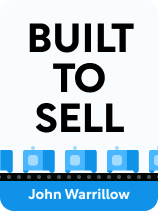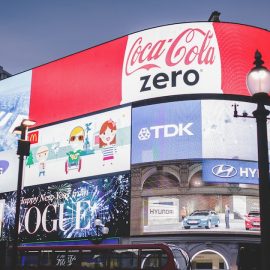

This article is an excerpt from the Shortform book guide to "Built to Sell" by John Warrillow. Shortform has the world's best summaries and analyses of books you should be reading.
Like this article? Sign up for a free trial here.
What is a scalable business model? Do you have a product that you specialize in selling?
According to John Warrillow’s book Built to Sell, a scalable business is one that focuses on the efficiency of the services it specializes in. If you’re looking to sell your business, you need to find a product that is scalable.
Keep reading to learn how to model a scalable business.
Find Your Scalable Specialty
Warrillow claims the one step in building a scalable business model is to determine which service or product to specialize in. Many small companies spread their efforts too thin over a variety of products or services. This may be good for business in the short term, but it makes it much harder to grow as a company because you won’t have the time or resources to expand in several different areas simultaneously. Instead, find one product or service that you not only excel at, but that is scalable.
A scalable product or service should have three attributes:
Provide unique value: Your specialty should be something that’s both valuable to customers and differentiates you from your competitors. For instance, you may be good at creating functional ecommerce websites, but so are countless other companies. Instead, find a service that only you provide: You might decide to design websites specifically for companies that sell sports equipment. Though this is a smaller addressable market, you’re more likely to separate yourself from competitors.
(Shortform note: Differentiating your company as Warrillow recommends means finding a niche—a narrow segment of a broader market you can offer unique and specialized value to. In The 4-Hour Workweek, Tim Ferriss echoes this advice, and notes that finding a niche you can offer a unique value to can help you compete against large companies with more resources than you because by specializing, you can make more money with less time and effort. Accomplishing your goal (such as offering a service or product) with less time and effort will allow for the scalability that Warrillow recommends.)
Learnable: If you’re selling a product, it should be a product that others can learn how to make relatively easily or that can be made with technology. If it’s a service, employees should be able to learn how to provide it consistently. If your product or service can only be done by the owner or a single expert, it’s going to be a huge challenge to grow a successful company around it.
(Shortform note: In The 4-Hour Workweek, Ferriss advises that a company’s product shouldn’t just be relatively easy for employees to make and understand, it should also be able to be made quickly and should be easy to understand from the customer’s point of view. A product that can be made quickly will not only cost less to make, but will allow you to adjust to changes in demand. Additionally, a customer shouldn’t be left wondering how the product works or what benefits it provides because this will curtail its popularity and keep you from scaling up. Ferriss recommends having a product you can explain in a single sentence and using an online FAQ page to answer other potential questions.)
Warrillow points out that these two attributes often clash with each other: The more learnable a service is, the less likely it is to provide unique value. To find the ideal product or service, you’ll need to find a balance between these two attributes. For example, you might decide that to provide a unique service, you need to put new employees through an extensive 12-week training program.
(Shortform note: The authors of Blue Ocean Strategy argue, like Warrillow, that the best way to build a scalable company is to find a market that’s uncontested. Instead of balancing learnability and uniqueness, however, they recommend striking a balance between innovation and value with your product or service. The value being the benefit your product provides, while innovation is your product’s originality. Value without innovation leads to miniscule profits and growth, and innovation without value leads to unique products that nobody wants to purchase.)
Repurchasable: Warrillow states that the most important factor to consider in a scalable service or product is its ability to be purchased repeatedly by customers. If you can only sell a product or service once per customer, it’ll be difficult to scale. Some forms of repurchasable products are more valuable than others—for instance, subscription services are more valuable than consumables because you have guaranteed revenue for the duration of the subscription—but no matter what you sell, make sure that you at least have a chance at some repeat customers. Otherwise, you’re fighting an uphill battle toward sustainable growth.
(Shortform note: On top of selling a repurchasable product, you should also make sure that people want to repurchase your product. The authors of Raving Fans argue that you should work to exceed customers’ expectations because this will encourage repeat customers and give you a reliable source of revenue. According to the authors, the best way to do this is to focus on customer service, as businesses with great customer service have higher customer retention rates and revenues.)

———End of Preview———
Like what you just read? Read the rest of the world's best book summary and analysis of John Warrillow's "Built to Sell" at Shortform.
Here's what you'll find in our full Built to Sell summary:
- A step-by-step process for building a business you can sell
- Why you should build a sellable business even if you don't intend to sell it
- How to manage the selling of your business and all the headaches that come with it






